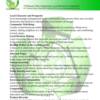




Powered By Google, Yahoo, Bing and Intuit
Ali Baba Grill - Lebonese and Persian
Blue Canyon Bar & Grill - casual fare
Briarwood Inn - continental
Cody Inn Restaurant Restaurant
El Dorado Mexican Restaurant
El Señor Sol - Mexican
El Tapatio Mexican Restaurant
Empanada Express - Venezuelan
Grappa Bistro - mediterranean
Halu Sushi
Hop's Restaurant & Brewery - brewpub
In the Zone Sports Bar - casual fare
Lonestar Steakhouse - casual
Mannie and Bo's Pizzaria - pizza and more
Mimi's Cafe - breakfast, lunch, and dinner
Old Capitol Grill - casual fare
Santiago's - Mexican
Sherpa House - Nepalese, Tibetan
The Table Mountain Inn - southwestern
Three Tomatoes Steakhouse at Fossli Trace Golf Club
Westfalen Hof - German
Windy Saddle Cafe - breakfast, lunch




ARCM Property Management Services 303-351-8315
652 Ammons St., Lakewood, CO
Mitchells Snowin and Mowin 720-366-0481
Lakewood, CO
Schulhoff Tree & Lawn Care Inc 303-279-1910
14200 W 32nd Ave # 2, Golden, CO
Greenstone Landscape Design, LLC
1415 East Street, Golden, CO 303-979-5221
Schultz Industries Inc 303-420-7677
13451 West 43rd Drive, Golden, CO
Condo Upkeep Co 303-278-9392
15455 W. 32nd Avenue, Golden, CO
Lawn Care, Gardening, Landscaping and Property Management
In this section of Inside Scoop you will find local lawn and snow Removal property management businesses offering quality services at an affordable rate. Lawn services, snow removal and property services for both residential and commercial. Whether you need a one time mow job, or all season long, find a specialist here. Lakewood Inside Scoop has done the research for you. The companies advertised here take pride in a well maintained property. Free estimates are available with most companies, Call today!
Lawn Maintenance / Snow Removal
Colorado Inside Scoop Supports Local Business
in Your Area
Denver | Aurora | Arvada | Westminster | Centennial | Thornton | Highlands Ranch | Littleton | Broomfield | Wheat Ridge | Englewood | Northglenn | Commerce City | Golden | Federal Heights | Greenwood Village | Cherry Hills Village | Sheridan | Edgewater | Lone Tree | Glendale | Bennett | Strasburg | Byers | Indian Hills | Kittredge | Deer Trail | Morrison | Louviers | Sedalia | Black Hawk | Idledale | Eastlake | Henderson | Adams City | Watkins | Dupont | Montbello | Acres Green | Foxfield | Welby | Applewood | Bow Mar | Carriage Club | Columbine | Cottonwood | Derby | Gold Hill | Grand View Estates | Gunbarrel | Heritage Hills | Ken Caryl | Lakeside | Meridian | Mountain View | North Washington | Roxborough Park | Sherrelwood | Southglenn | Todd Creek | Twin Lakes | Westcreek | Parker | Franktown | Evergreen | Deckers | Genesee | Idaho Springs | Lochbuie | Columbine Valley | Denver (metro)
Accountancy is the process of communicating financial information about a business entity to users such as shareholders and managers.[1] The communication is generally in the form of financial statements that show in money terms the economic resources under the control of management; the art lies in selecting the information that is relevant to the user and is reliable.[2] Accountancy is a branch of mathematical science that is useful in discovering the causes of success and failure inbusiness. The principles of accountancy are applied to business entities in three divisions of practical art, named accounting, bookkeeping, and auditing.[3]
Accountancy is defined by the Oxford English Dictionary (OED) as "the profession or duties of an accountant".
Accounting is defined by the American Institute of Certified Public Accountants (AICPA) as "the art of recording, classifying, and summarizing in a significant manner and in terms of money, transactions and events which are, in part at least, of financial character, and interpreting the results thereof."[4]
Accounting is thousands of years old; the earliest accounting records, which date back more than 7,000 years, were found in Mesopotamia (Assyrians). The people of that time relied on primitive accounting methods to record the growth of crops and herds. Accounting evolved, improving over the years and advancing as business advanced.[5]
Early accounts served mainly to assist the memory of the businessperson and the audience for the account was the proprietor or record keeper alone. Cruder forms of accounting were inadequate for the problems created by a business entity involving multiple investors, so double-entry bookkeeping first emerged in northern Italy in the 14th century, where trading ventures began to require more capital than a single individual was able to invest. The development of joint stock companies created wider audiences for accounts, as investors without firsthand knowledge of their operations relied on accounts to provide the requisite information.[6] This development resulted in a split of accounting systems for internal (i.e. management accounting) and external (i.e. financial accounting) purposes, and subsequently also in accounting and disclosure regulations and a growing need for independent attestation of external accounts by auditors.[7]
Today, accounting is called "the language of business" because it is the vehicle for reporting financial information about a business entity to many different groups of people. Accounting that concentrates on reporting to people inside the business entity is called management accounting and is used to provide information to employees, managers, owner-managers and auditors. Management accounting is concerned primarily with providing a basis for making management or operating decisions. Accounting that provides information to people outside the business entity is called financial accounting and provides information to present and potential shareholders, creditors such as banks or vendors, financial analysts, economists, and government agencies. Because these users have different needs, the presentation of financial accounts is very structured and subject to many more rules than management accounting. The body of rules that governs financial accounting is calledGenerally Accepted Accounting Principles, or GAAP.[8]
Get the Inside Scoop on Local Businesses
Colorado Inside Scoop
652 Ammons Street
Lakewood, CO 80214
303-351-8315 "Like" on Facebook Goto>


Get the Inside Scoop on Local Businesses
Mitchell's Snowin and Mowin
Lakewood, CO 80214
303-351-8315 "Like" on Facebook Goto>




























